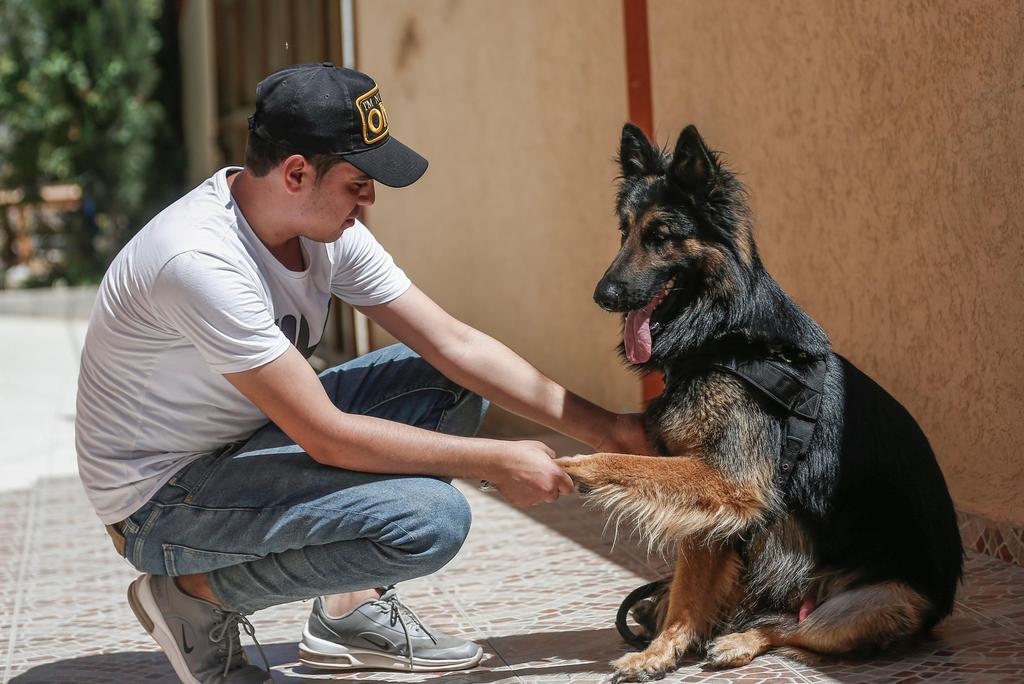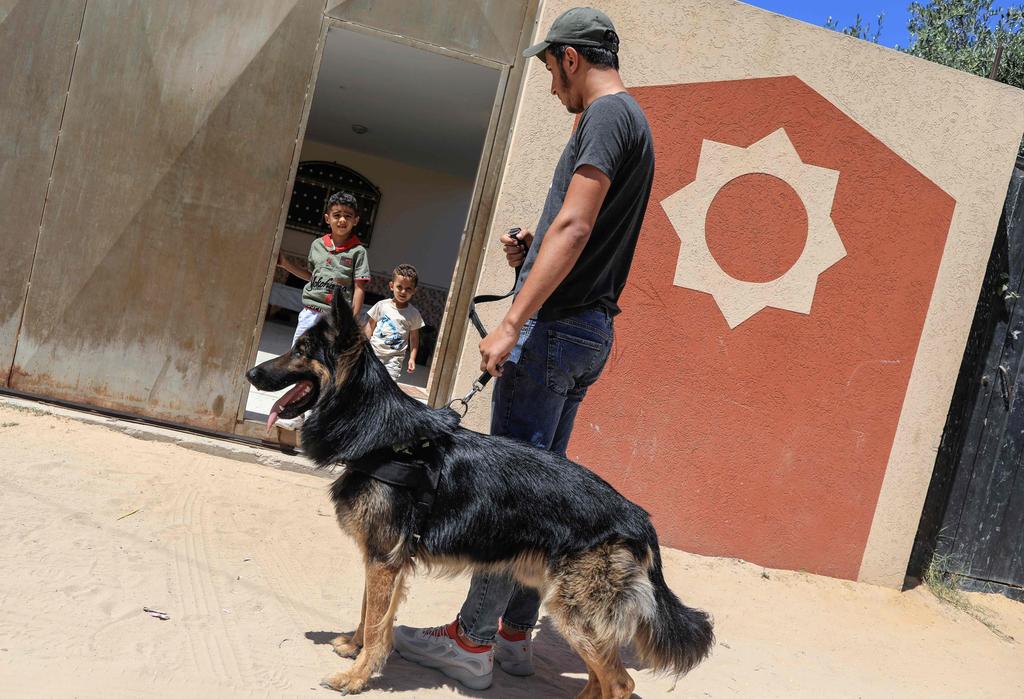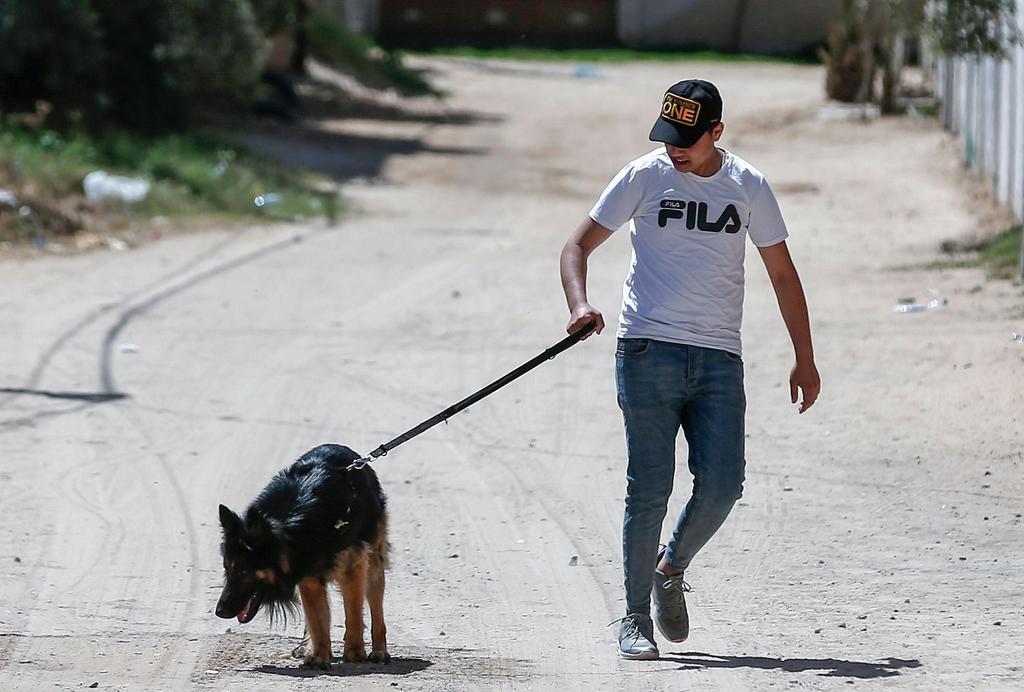Steve, a German Shepherd, used to get his morning exercise by frolicking on Gaza's Mediterranean beaches.
But since the Palestinian enclave's Islamist rulers Hamas imposed a ban on exercising pet dogs in public in mid-June, owner Ossama Al-Dahdouh has to walk Steve on the roof of his house.
Dog ownership in Gaza has never been comparable to the West, where some communities allow canines nearly unimpeded access to public spaces.
But in recent years, having a pet dog has become increasingly trendy in Gaza, which has been under an Israeli-imposed blockade for more than a decade.
German Shepherds, Pit Bulls, and Dobermans were the most sought after breeds, residents said.
Some were brought in via tunnels dug under the Egyptian border, but others entered through the Israeli-controlled border, where the flow of goods, people, and pets is tightly controlled.
Said al-Ar even opened a shelter where he looked after street dogs in the hope of finding them homes.
But, despite their rising popularity, not everyone in Gaza came to accept dogs as a man's, or woman's, best friend.
Some in the enclave still viewed them as unclean and best suited for guard duties.
Meanwhile, Hamas authorities said they were inundated with complaints about dogs disrupting the public and so were forced to crack down.
Police spokesman Ayman al-Batniji said recently that people now caught walking a dog in public faced a fine, or even arrest.
Dahdouh said he was worried about Steve now that his beach runs have been banned.
"Not being able to walk a dog can cause health problems. He can become more aggressive," said Dahdouh, noting that he paid $200 (177 euros) for Steve.
Mahmoud Fatoum told AFP he spent $900 on his dog, an extraordinary sum in Gaza where more than half the population lives in poverty, according to the World Bank.
He said the dog-walking ban was causing him major problems, with his pet forced to stay home all day, upsetting his neighbors.
"Their children are afraid of dogs."




